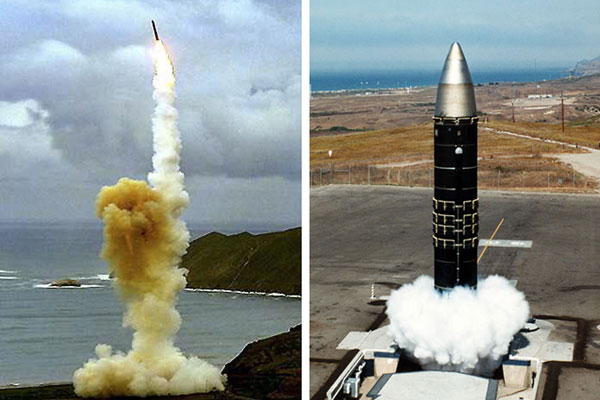President Obama’s speech in Berlin included a nuclear reduction pledge that is based on poor assumptions and an unrealistic goal. It is a policy that will leave the U.S. weaker as Russia continues its strategic arms buildup.
Former Senator Jon Kyl (R–AZ) points out in a recent op-ed that Obama would have been better off consulting Congress before making grand promises. Another treaty with Russia would require further nuclear reductions, and Obama’s going forward with this policy unilaterally is premature.
The Obama Administration already hit its first roadblock in the House, as the recently passed National Defense Authorization Act prohibits the elimination of the nuclear triad and limits availability of funds for further nuclear reductions.
Obama’s nuclear policy poorly assumes that other state actors, especially Russia, share or would share the desire for further nuclear weapon reductions if the U.S. takes the lead. Peter Brookes, Heritage’s senior fellow for national security affairs, points out that “so far Putin has given the idea of further nixing nukes the cold shoulder, no doubt in response to long-standing disagreements over U.S. missile defenses and more recently over efforts to oust Bashar Assad from Syria.”
Furthermore, Brookes asks, “why would Russia agree to further cuts in its nuclear arsenal since it’s involved in a major modernization program that’s allowing it to grow—yes, grow—its nuclear forces to U.S. levels under New START?”
Obama’s proposed policy appears wholly ignorant of what is driving the nuclear programs of other countries, especially those that are cause for concern. Iran and North Korea want nuclear weapons for legitimacy reasons, while China and Russia seek international influence through their modernization and development programs. If anything, these are incentives to increase and modernize U.S. nuclear weapons, not get rid of them.
The U.S. should do the same, as our current nuclear arsenal is older than twice its design life. To make matters worse, we are the only nuclear state without a modernization program, which means the U.S. currently cannot meet the need to replace or modernize these weapons.
Obama’s desire for another round of nuclear reductions does not make sense. The proposed policy is based on utopian dreams, not hard analysis and statecraft.
Joshua Holdenried is currently a member of the Young Leaders Program at The Heritage Foundation. For more information on interning at Heritage, please click here.




























